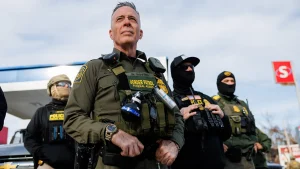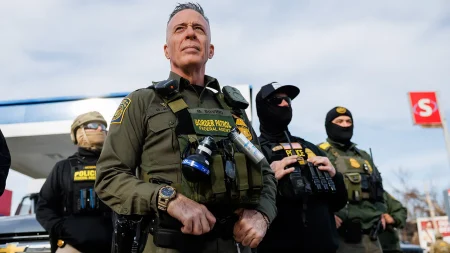Taiwan Announces Historic Defense Budget Boost Amid Rising Regional Tensions
President Lai Ching-te Proposes Unprecedented Military Spending Plan to Strengthen National Security
In a bold move signaling Taiwan’s commitment to self-defense, President Lai Ching-te has unveiled a landmark defense spending proposal that would represent the largest military budget increase in the island nation’s recent history. The ambitious plan, which requires legislative approval, is primarily aimed at funding new arms purchases from the United States, Taiwan’s longstanding security partner and primary weapons supplier.
Speaking from the Presidential Office in Taipei on Tuesday, Lai emphasized that the proposed budget reflects Taiwan’s determination to maintain peace through strength in an increasingly volatile region. “Our commitment to defending our democratic way of life remains unwavering,” Lai stated during the announcement. “This investment in our defense capabilities is not about provocation, but about ensuring Taiwan can effectively deter threats and safeguard our sovereignty.” The president’s proposal comes amid escalating military activities across the Taiwan Strait and growing concerns about regional stability, factors that have prompted Taiwan’s government to accelerate its defense modernization efforts.
The comprehensive spending package, totaling approximately $19 billion according to government sources, represents a significant 15% increase from the previous year’s allocation. Security analysts note that if approved, the funds would primarily finance the acquisition of advanced missile defense systems, anti-ship missiles, reconnaissance drones, and communication equipment from American defense contractors. Dr. Lin Wei-chou, a defense policy expert at National Chengchi University, explained that “this budget reflects Taiwan’s asymmetric warfare strategy, focusing on mobility, survivability, and precision strike capabilities rather than matching China’s military scale.” The proposed expenditure aligns with recommendations from U.S. defense officials who have encouraged Taiwan to invest in smaller, more resilient systems that could better withstand and complicate any potential blockade or invasion attempt.
Taiwan’s Legislative Process and Political Considerations
The path to implementing this historic defense increase, however, runs through Taiwan’s Legislative Yuan, where the proposal faces varying levels of support and scrutiny across political factions. While Lai’s Democratic Progressive Party (DPP) holds a slim majority, the budget will undergo rigorous committee reviews and floor debates before final approval. Legislative Speaker Tsai Chi-chang acknowledged the significance of the proposal, stating: “National security transcends party lines, and this budget deserves thorough yet expeditious consideration given the security challenges we face.” Opposition lawmakers, while generally supportive of strengthening national defense, have called for greater transparency regarding specific allocations and have expressed concerns about the economic impact of such significant military spending during a period of global economic uncertainty.
Economic implications of the proposed defense budget have become a central point in the national conversation. Finance Minister Huang Tien-lin addressed these concerns during a press conference, explaining that “the increased defense spending would be partially offset by economic benefits through domestic production partnerships and technology transfers.” The government estimates that approximately 40% of the budget would stimulate Taiwan’s own defense industry through cooperation agreements with American suppliers. This approach aligns with Taiwan’s “self-strengthening” defense policy, which aims to enhance domestic production capabilities while maintaining crucial international security partnerships. Economic analysts project that the defense investments could generate up to 22,000 high-skilled jobs in Taiwan’s technology and manufacturing sectors over the next five years, potentially creating a positive multiplier effect throughout the economy.
Public opinion regarding the increased military spending appears cautiously supportive, according to recent polling data. A survey conducted by the Taiwan Public Opinion Foundation found that 68% of respondents favor increasing defense capabilities, though concerns about potential economic trade-offs remain. “Most Taiwanese understand the security environment we face,” remarked sociologist Dr. Chen Ming-chi of National Taiwan University. “There’s a growing recognition that robust defense capabilities are necessary, though citizens naturally want assurance that other public needs won’t be neglected.” The government has attempted to address these concerns by emphasizing that education, healthcare, and social welfare budgets would be protected despite the defense increase, with officials pointing to anticipated economic growth and targeted efficiency measures to maintain fiscal balance.
International Reactions and Strategic Implications
The international community has responded with measured statements to Taiwan’s proposed defense buildup. U.S. State Department spokesperson Jennifer Reynolds characterized the plan as “consistent with Taiwan’s legitimate self-defense needs and in line with its responsibilities to maintain sufficient defensive capabilities.” Japanese Defense Minister Takeshi Yamamoto noted that “stability across the Taiwan Strait is essential to regional security,” while avoiding direct comment on the specific budget proposal. Predictably, officials in Beijing expressed strong opposition, with Chinese Foreign Ministry spokesperson Liu Wenbin denouncing the move as “provocative” and warning that “attempts to seek ‘Taiwan independence’ through military means will inevitably fail.”
Regional security experts view Taiwan’s defense enhancement as part of a broader strategic recalibration occurring throughout the Indo-Pacific. Dr. Richard Haass, president emeritus of the Council on Foreign Relations, observed that “Taiwan’s increased defense investment reflects a wider trend of Asian democracies strengthening their security postures amid changing regional dynamics.” The proposed arms purchases would significantly enhance Taiwan’s ability to deter aggressive actions by establishing what military strategists call a “porcupine defense” – making any potential invasion so costly that it serves as an effective deterrent. Admiral (Ret.) James Stavridis, former NATO Supreme Allied Commander, noted that “Taiwan is wisely focusing on systems that improve survivability and complicate military calculus, rather than simply trying to match China ship for ship or plane for plane.”
Technological Focus and Military Modernization Efforts
At the heart of Taiwan’s defense modernization is a technological transformation emphasizing innovation, mobility, and resilience. Defense Minister Wellington Koo detailed that the proposed budget would accelerate Taiwan’s development of indigenous advanced capabilities, including unmanned systems, cyber defense, and electronic warfare tools. “The traditional concepts of warfare are evolving rapidly,” Koo explained. “This budget allows us to adapt to these changes while leveraging Taiwan’s technological strengths.” Particularly noteworthy is the allocation for strengthening Taiwan’s cyber defenses, with approximately $1.3 billion earmarked for enhancing protection of critical infrastructure against increasingly sophisticated digital threats.
The proposed arms purchases from the United States would focus on systems that have proven effective in recent conflicts, including advanced reconnaissance drones, coastal defense cruise missiles, field communications equipment, and portable air defense systems. Military analysts highlight that these acquisitions reflect lessons learned from modern conflicts, including Ukraine’s effective resistance strategies. “Taiwan is closely studying contemporary warfare,” explained retired Admiral Lee Hsi-ming, former chief of Taiwan’s armed forces. “We’re applying those insights to our own unique geographic and strategic context.” Beyond hardware acquisitions, significant portions of the budget would fund enhanced training programs, improved reserve mobilization systems, and extended mandatory military service – comprehensive measures aimed at strengthening Taiwan’s overall defense readiness and resilience in the face of evolving regional security challenges.
As Taiwan’s legislature begins deliberations on this landmark defense proposal, the outcome will signal not only the island’s security priorities but also its strategic vision for navigating an increasingly complex geopolitical environment. Through this unprecedented investment in defense capabilities, President Lai is attempting to balance immediate security needs with long-term strategic considerations while demonstrating to both allies and potential adversaries that Taiwan remains firmly committed to defending its democratic way of life through prudent, determined self-strengthening measures.










